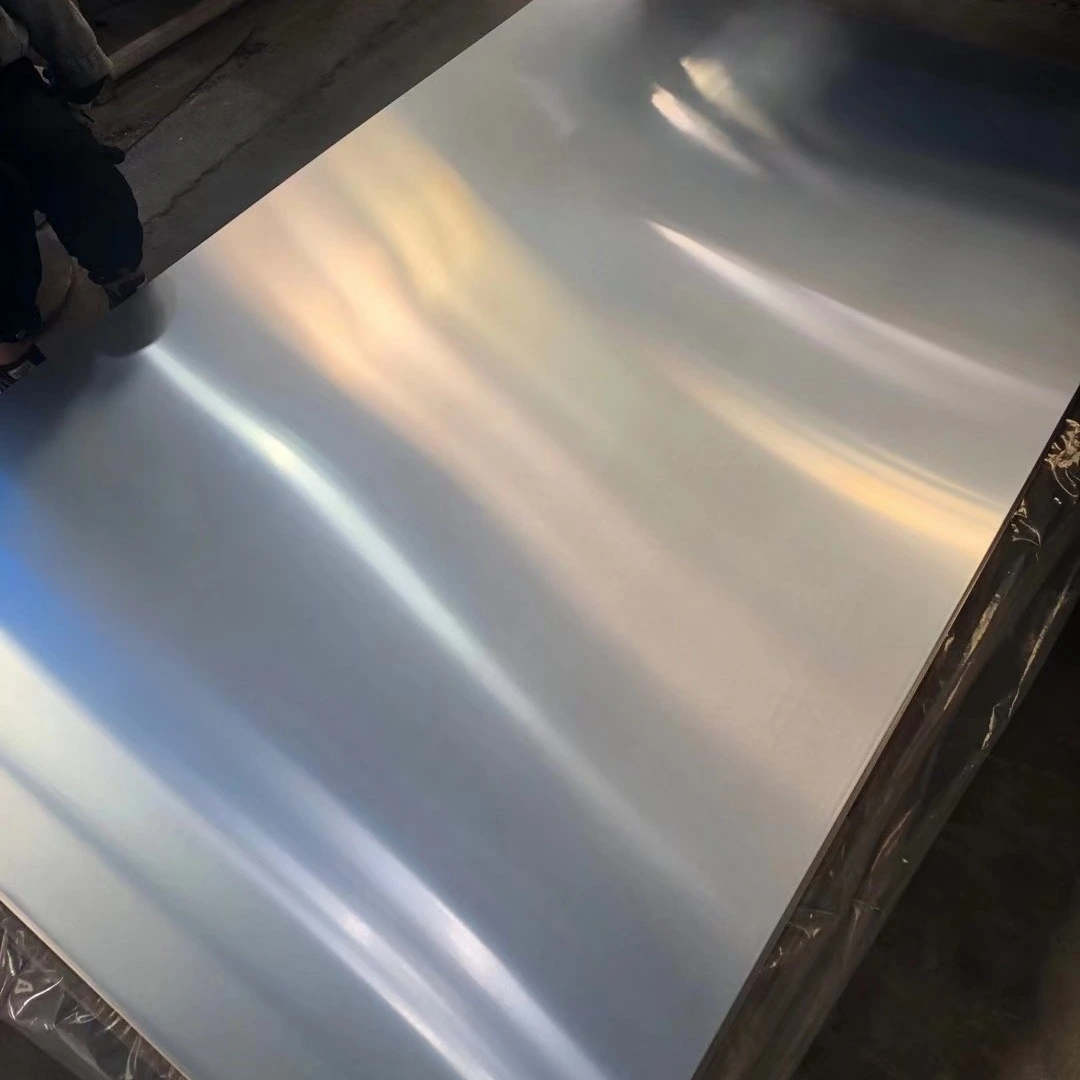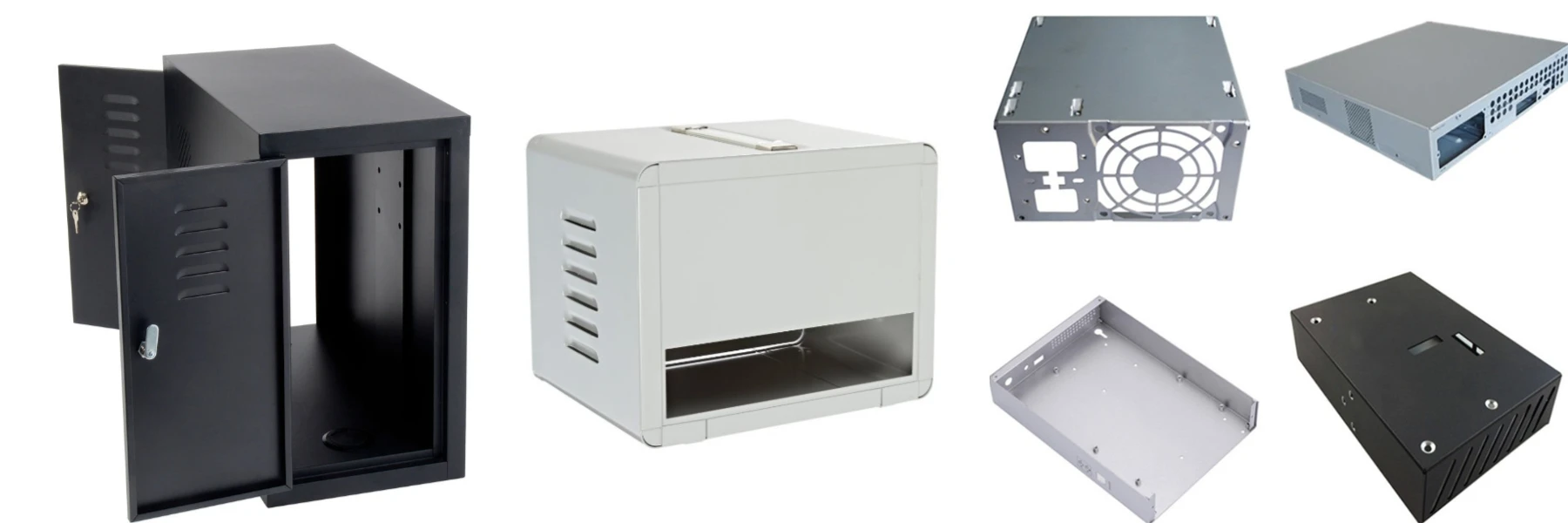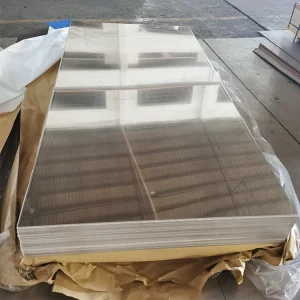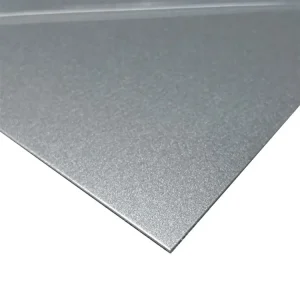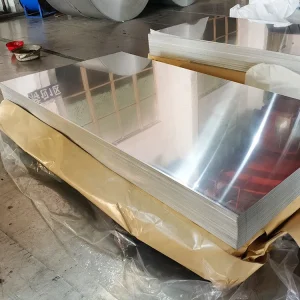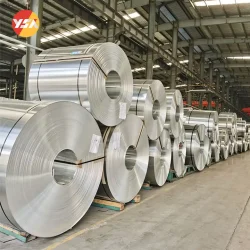Product Introduction
Anodizing is an electrochemical process that forms an oxide layer on the surface of aluminum, providing enhanced corrosion resistance, hardness, and surface durability. Anodized aluminum is commonly used in power supply unit (PSU) enclosures, and aluminum alloys from the 1000 and 3000 series are often employed for their lightweight, durable, and thermally conductive properties.
The anodized surface offers electrical insulation and resistance to electromagnetic interference (EMI), ensuring the safety and proper functioning of the PSU. The hardness and strength of anodized aluminum protect the internal components, while its thermal dissipation properties help maintain optimal operating temperatures. Furthermore, the ability to customize the color and texture of the anodized surface adds to the visual appeal and personalization of the PSU enclosure.
Specifications
| Alloy | 1000, 3000, 5000, 6000, 8000 Series |
| Temper | O – H112 , T3 – T8 , T351 – T851 |
| Width | up to 2600 mm |
| Thickness | 0.01 mm-350 mm |
| Size | Size can be customized |
| Delivery Time | Ready stock 7-10 days |
| MOQ | 1 ton |
| Loading Port | Qingdao Port, Tianjin Port, Shanghai port. |
| Price Terms | FOB, CIF, CFR, CNF, etc. |
| Quality Control | Mill Test Certification is supplied with shipment, Third Party Inspection is acceptable. |
Applications
Anodized aluminum stands out as a reliable and versatile material choice for PSU enclosures. It not only serves its functional purpose but also enhances the overall aesthetics and performance of the power supply unit.
1050, 1060, and 1100 aluminum alloys are pure aluminum alloys, which are commonly used choices for power supply unit (PSU) enclosures. They exhibit good electrical conductivity, workability, corrosion resistance and thermal conductivity, can be easily shaped, welded, and cut, making they suitable to house the internal components of the power supply, including the transformers, capacitors, circuit boards, and connectors.
Product Advantages
As a professional manufacturer with decades of experience in aluminum materials, our anodized aluminum exhibits outstanding performance:
- Corrosion Resistance: Yongsheng anodized aluminum features an excellent resistance to corrosion. The oxide layer is highly resistant to fading or degradation, allowing it to maintain surface integrity and durability even in harsh environments, addressing the shortcomings of regular aluminum in acidic or alkaline conditions.
- Insulation: Our anodized aluminum exhibits good insulation properties, making it suitable for electronic and electrical applications as an insulating material.
- Uniformity: The oxide layer of Yongsheng’s anodized aluminum demonstrates high uniformity, ensuring a consistent performance and appearance throughout the entire surface of the aluminum material.
- Controllable Film Thickness: The thickness of the oxide film in anodized aluminum can be precisely controlled by adjusting the processing time and conditions, meeting the requirements of various applications. Yongsheng Aluminum is capable of producing oxide layers with different thicknesses, ranging from a few micrometers to tens of micrometers.
- Adhesion: Yongsheng guarantees excellent adhesion between the oxide layer and the substrate, providing long-lasting protection.
- Thermal Stability: Yongsheng’s anodized aluminum can maintain its performance and appearance stability within a certain temperature range, exhibiting high temperature resistance.
Alloys
Commonly used anodized aluminum materials for PSU is the 1xxx series aluminum. Specific parameters for the different alloys of the 1xxx series aluminum by Yongsheng:
| Alloy | State | Thickness(mm) | Tensile Strength(Mpa) | The Yield Strength(Mpa) | elongation(%) | hardness(HV) |
| 1050 (1060) |
0 | >0.2-0.5 | 60-100 | ≥15 | ≥20 | 20-30 |
| >0.5-1.0 | ≥30 | |||||
| >1.0-4.0 | ≥35 | |||||
| H22 | >0.2-0.5 | 80-120 | ≥60 | ≥12 | 30-40 | |
| >0.5-1.0 | ≥15 | |||||
| >1.0-4.0 | ≥18 | |||||
| H24 | >0.2-0.5 | 95-135 | ≥70 | ≥6 | 35-45 | |
| >0.5-1.0 | ≥8 | |||||
| >1.0-4.0 | ≥10 | |||||
| H26 | >0.2-0.5 | 110-155 | ≥75 | ≥2 | 43-55 | |
| >0.5-1.0 | ≥4 | |||||
| >1.0-4.0 | ≥6 | |||||
| H18 | >0.2-0.5 | ≥125 | ≥85 | ≥2 | 50-65 | |
| >0.5-1.0 | ≥3 | |||||
| >1.0-4.0 | ≥4 | |||||
| Alloy | State | Thickness(mm) | Tensile Strength(Mpa) | The Yield Strength(Mpa) | elongation(%) | hardness(HV) |
| 1100 | 0 | >0.2-0.5 | 75-105 | ≥25 | ≥18 | 25-30 |
| >0.5-1.0 | ≥30 | |||||
| >1.0-4.0 | ≥35 | |||||
| H22 | >0.2-0.5 | 95-130 | ≥75 | ≥12 | 30-40 | |
| >0.5-1.0 | ≥15 | |||||
| >1.0-4.0 | ≥18 | |||||
| H24 | >0.2-0.5 | 110-145 | ≥95 | ≥6 | 38-40 | |
| >0.5-1.0 | ≥8 | |||||
| >1.0-4.0 | ≥10 | |||||
| H26 | >0.2-0.5 | 130-165 | ≥115 | ≥2 | 45-60 | |
| >0.5-1.0 | ≥4 | |||||
| >1.0-4.0 | ≥6 | |||||
| H18 | >0.2-0.5 | ≥150 | ≥130 | ≥2 | 55-70 | |
| >0.5-1.0 | ≥3 | |||||
| >1.0-4.0 | ≥4 | |||||
| 3003 (3A21) |
0 | > 0.2-0.5 | 95-140 | ≥ 35 | ≥ 15 | 30-40 |
| > 0.5-1.0 | ≥ 30 | |||||
| > 1.0-4.0 | ≥ 35 | |||||
| H22 | > 0.2-0.5 | 120-160 | ≥90 | ≥ 12 | 39-53 | |
| > 0.5-1.0 | ≥ 15 | |||||
| > 1.0-4.0 | ≥ 18 | |||||
| H24 | > 0.2-0.5 | 145-195 | ≥125 | ≥ 6 | 42-59 | |
| > 0.5-1.0 | ≥ 8 | |||||
| > 1.0-4.0 | ≥ 10 | |||||
| H26 | > 0.2-0.5 | 170-210 | ≥150 | ≥ 2 | 55-65 | |
| > 0.5-1.0 | ≥ 4 | |||||
| > 1.0-4.0 | ≥ 6 | |||||
| H18 | > 0.2-0.5 | ≥ 190 | ≥ 170 | ≥ 2 | 60-85 | |
| > 0.5-1.0 | ≥ 3 | |||||
| > 1.0-4.0 | ≥ 4 |

